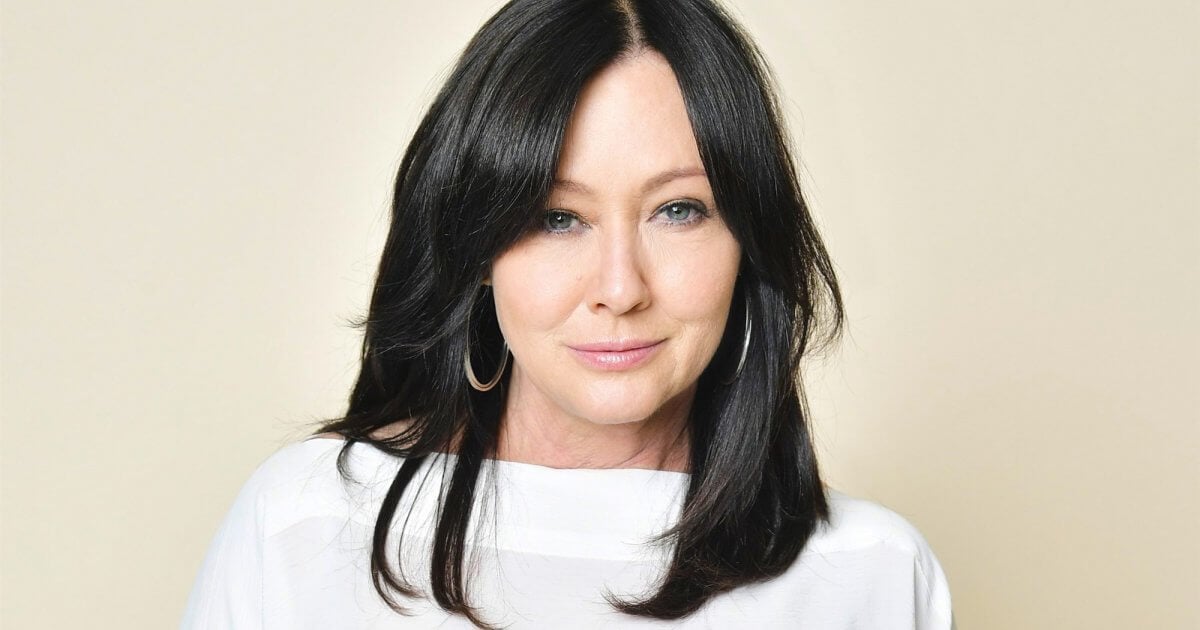Working Through Cancer
- Shannen Doherty says there are three things she's focusing on: work, family and continuing awareness for cancer.
- Doherty is living and working with stage 4, or metastatic, breast cancer. She's on set again, this time filming a new movie, Hot Seat, that reunites her with director James Cullen Bressack; Doherty and Bressack each shared a selfie from the set today.
- Receiving a cancer diagnosis is a life-altering event, and finding pockets of normalcy is often welcome. For most people, including Doherty, continuing to work can be an effective strategy for keeping things as "normal" as possible.
Doherty is living and working with stage 4, or metastatic, breast cancer. Her cancer is just "part of life at this point," she said in September during a panel discussion about her new Lifetime movie, List of a Lifetime, which centers around a woman who's been diagnosed with breast cancer.
Read More
View this post on Instagram
"James, I appreciate you as my director and my friend. Thank you for another great opportunity," she writes.
Bressack posted the same selfie with Doherty, writing: “That’s 10 projects together and hopefully a million more. Thank you for always elevating the project but more importantly always elevating me as a filmmaker, and always pushing me to do my best. I appreciate you more than you will ever know. You are always my support system on set. Shoots are never as fun without you. The world has yet to see what you are truly capable of as a performer.”
View this post on Instagram
View this post on Instagram
Working Through Cancer
Receiving a cancer diagnosis is a life-altering event, and finding pockets of normalcy during the battle is often welcome. For most people, even Doherty, continuing to work or going back to work every day if you're well enough to do so can be an effective strategy for keeping things as "normal" as possible during an abnormal health event like cancer.
Doherty makes it clear in her social media posts that she loves her job and is eager to continue working despite her cancer diagnosis.
Working During Your Cancer Treatment
Laurie Ostacher, a clinical social worker at Sutter Health’s Palo Alto Medical Foundation, tells SurvivorNet how important a person's career may be to them, even during the cancer battle. "Some women choose to continue working (through cancer) because working is a significant part of their identity," she says. "They enjoy the job, and there's flexibility built in." This is something Shannen Doherty can attest to.
"I help folks think about whether it makes sense to work," she adds. "If you really don't want to but are worried you're not going to be able to make ends meet, then I'll sit down and help them figure out, you know, with your disability insurance, would this be possible?"
Ostacher explains the questions she might pose to women to probe them to think about how their work life might look through cancer.
"For women who choose to work," she says, "I help them think about what types of conversations do you need to have with their employer? How much information do you want to share with him or her? What type of work schedule seems like it might work for you? Where might you need more flexibility?"
Shannen Doherty's Breast Cancer Battle
Shannen Doherty's battle with breast cancer dates back to 2015, which is when she was first diagnosed with the disease; a lump was found in her breast, and it turned out to be malignant (cancerous). To fight the cancer, she underwent hormone therapy, but the treatments were ineffective; the cancer had spread to her lymph nodes.
The actress underwent a single mastectomy surgery to remove a breast; she also had chemotherapy and radiation treatments. One common treatment path for many people fighting breast cancer is surgery, such as a mastectomy or lumpectomy. (A lumpectomy is a surgery to remove cancerous breast tissue along with a rim of normal tissue.)
Metastatic Breast Cancer: You Are Not a Statistic
Doherty's cancer went into remission, but she announced in February 2020 that her cancer had returned, and it had spread to other parts of her body. This is stage 4 cancer, also known as metastatic disease.
Stage 4, or metastatic, cancers have spread beyond the breast and nearby lymph nodes to other parts of the body. When breast cancer spreads, it most commonly goes to the bones, liver and lungs. It may also spread to the brain or other organs.
Dr. Elizabeth Comen, a breast oncologist at Memorial Sloan Kettering Cancer Center, explained in a previous interview with SurvivorNet, "With advanced disease, the goal of treatment is to keep you as stable as possible, slow the tumor growth and improve your quality of life."
Contributing: Anne McCarthy
Learn more about SurvivorNet's rigorous medical review process.

